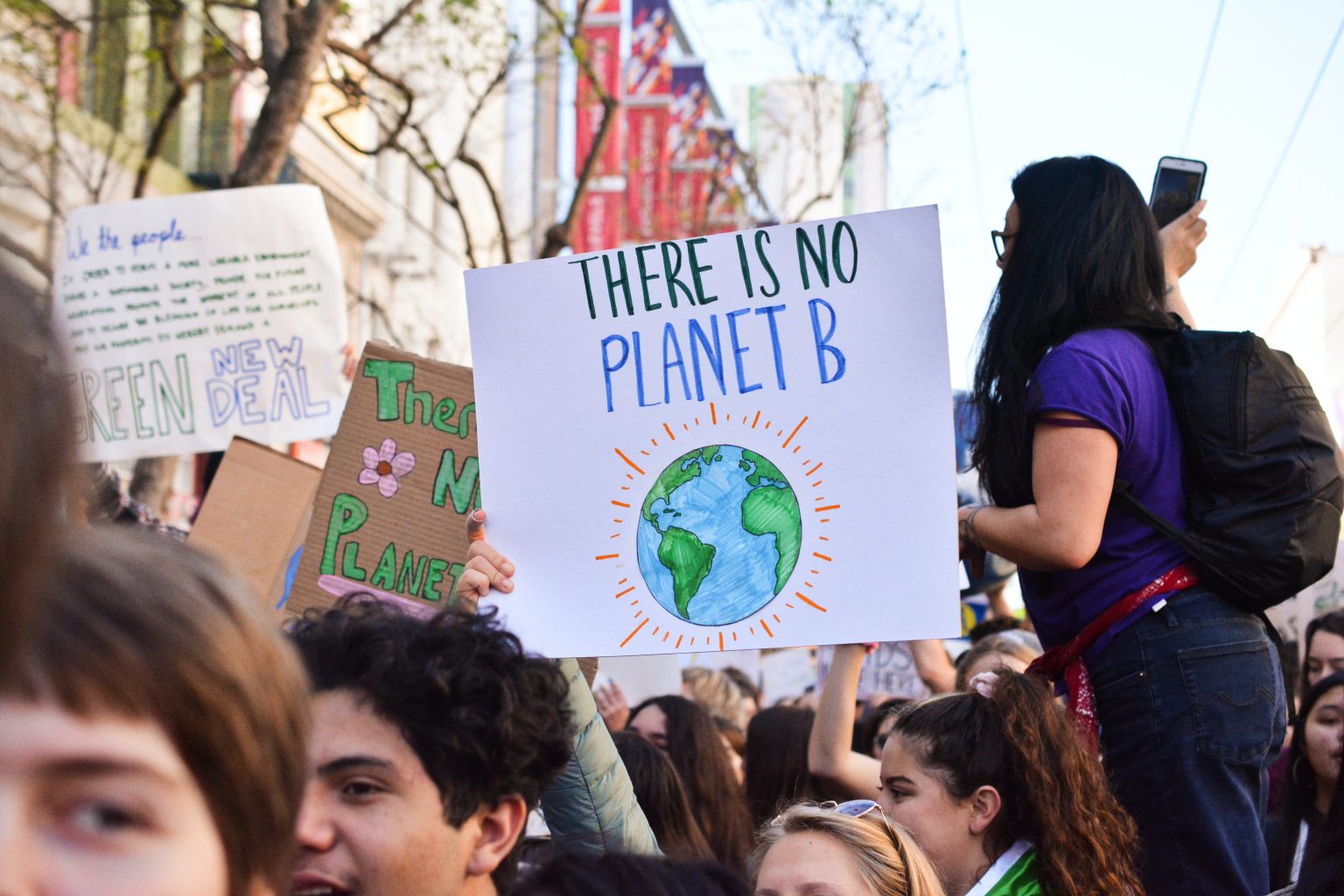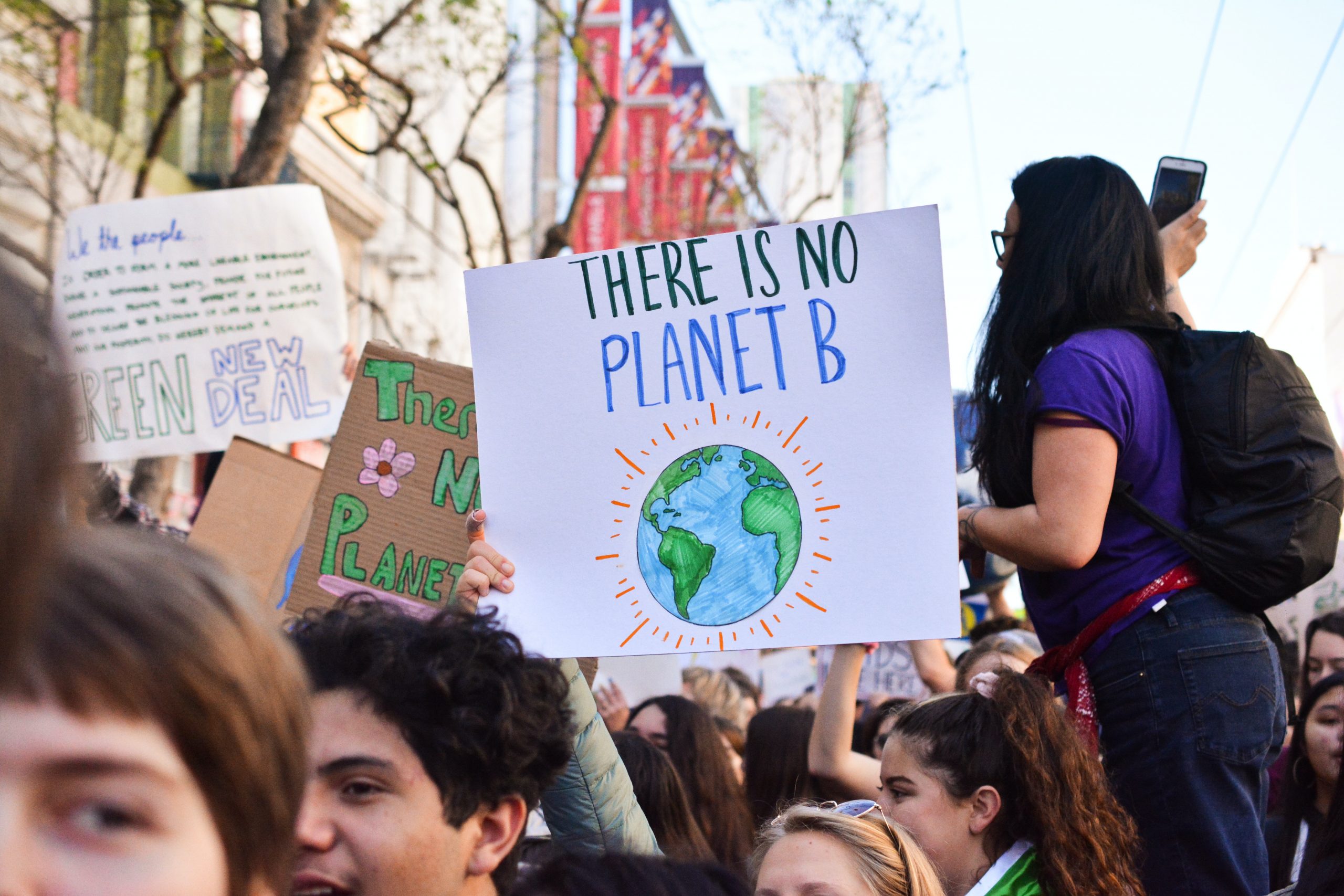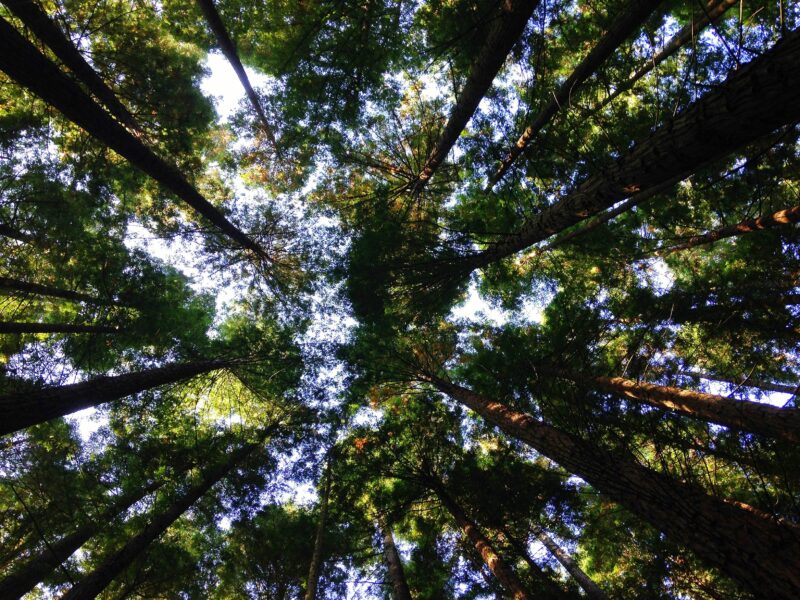Dr. Hilda P. Koster is an Associate Professor of Theology and Director of the Elliott Allen Institute for Theology and Ecology.
Of Heatwaves, Floods and Climate Change—Our Kairos Moment

What could have been a summer of cautious optimism about life post COVID-19 has unfortunately become a summer filled with climate change-related horrors. Wildfires due to the record-breaking temperatures and a prolonged drought in the Pacific Northwest took human life and destroyed homes. It also ravaged thousands of acres of forest and seriously endangered marine wildlife. In Northern Europe, including in my native country, The Netherlands, torrential rains caused unprecedented flooding and mudslides. In South Madagascar, off the coast of East Africa, the worst drought in four decades is driving more than a million people into famine.
While the connection between climate and weather is complex, climate scientists agree that the heat waves and rains of this past summer are clearly linked to anthropogenic changes to the climate. What has scientists alarmed, however, is not that there is a connection between extreme weather events and climate change but that these events have been so severe and prolonged. Harvard environmental policy professor John Holdren, who served as senior adviser to former U.S. President Barack Obama, observes that “[e]verything we worried about is happening, and it is all happening at the high end of projections, even faster than the previous most pessimistic estimates.” (Los Angeles Times, July 21). The world truly is running out of time and many people seem to sense this.
The Ecumenical Patriarch Bartholomew has called the climate crisis a Kairos moment for our churches and the world: “For the human race as a whole there is now a Kairos, a decisive time in our relationship with God’s creation. We will either act in time to protect life on earth from the worst consequence of human folly, or we will fail to act.” (Closing Address to Symposium on the Arctic, 2007). The Greek word Kairos means the right or opportune moment. From a theological perspective Kairos indicates that time takes on a holy urgency. Time is no longer simply linear time, stretching open towards the future. Instead, it becomes critical to act. Calling climate change a Kairos moment thus marks the present as a moment of truth and opportunity; a moment where our collective response will have far-reaching consequences.
This fall the eyes of the world are on the 26th UN Climate Change conference in Glasgow (Scotland). COP26 is meeting with the urgent task to implement the climate commitments of the 2015 Paris Climate Accord, which seek to limit the increase of the planet’s temperature to 1.5 degrees Celsius. The question before us then is whether the world community (especially the world’s wealthiest nations) can seize the moment of pandemic recovery as an opportunity to enact the necessary climate policies. For if we fail to grasp this moment and do in fact return to pre-pandemic rates of fossil fuel emission the world could be 1.5̊ Celsius hotter than it was prior to the industrial revolution as soon as 2030 and on track for much higher temperatures.
It is tempting to be skeptical about international climate conferences. After all, the world has passed many climate thresholds since the first UN climate conference in 1992. Climate change, however, is not just a political challenge; it is also a theological and spiritual one. In fact, our response to climate change touches upon the very core of Christian witness. For according to the Biblical tradition, God did not just create the world but also called it good. The Hebrew word for good, tov, means more than “good.” It implies a goodness that is life furthering, a life-generating capacity. Human induced climate change does not just go against this life-furthering capacity but is also undoing it. For those of us living in climate privileged communities, despair, resignation, or indifference are therefore not an option. Instead, we are called, in Pope Francis’ words, to an ecological conversion —that is, a change of heart in the way we look at, interact with, and behave towards the more-than human world with which we are entangled and on which we depend.
Kairos language keeps open the possibility of such an ecological conversion. It is stubbornly hopeful. In the Book of Revelation, John of Patmos sketches doomsday scenarios that eerily resemble those of our day. Yet with all its woes, Revelation does not foreclose the possibility of repentance (metanoia) and turning around. According to the New Testament scholar and eco-theologian Barbara Rossing, the catastrophes depicted by John are neither willed by God nor follow a cosmic destiny. In Revelation, God laments the state of the earth yet places the Christian community at an ethical crossroad (a Kairos moment) where it needs to choose between the polluting, death-dealing powers of Rome/Babylon or God’s New Jerusalem. While time is of the essence, John holds out the hope that the world will listen to the witnesses he so powerfully invokes towards the end of his book. It is significant, too, that Revelation ends with an attractive vision of the tree of life. There is no return to Eden, but there is a vision of what is possible. A vision rooted in the beauty and resilience of planetary life and in practices of an alternative political ecology, symbolized by the city-garden.
Many have heeded Pope Francis’ call for an ecological conversion. This September several religious communities and interfaith groups are embarking on a pilgrimage to COP26. They are visionary witnesses. Those of us outside the United Kingdom and Scotland are invited to add our own witness by walking to a special place or spot near us, posting our pictures and messages #Walkingtheland2021. Our messages will be collected and shared with delegates at COP26. In a time such as this, a time in which the world is running out of time, I invite all of you to participate in the Walking the Land project at https://www.pilgrimagefornature.com/walking-the-land and add your voice, dreams and hopes for our life together on this fragile planet.
Read other InsightOut posts.
The Vatican has designated May 16–24, 2020 Laudato Si’ Week to mark the 5th anniversary of the completion of Pope Francis’s groundbreaking document Laudato Si’: On care for our common home. (The document was formally signed on May 24, 2015 and released on June 18, 2015.) The global campaign is sponsored by the Vatican’s Dicastery for Promoting Human Development, and is designed to spur Catholics to become more involved in environmental action.
Dr. Dennis O’Hara, who authored the reflection below, edited a book on Laudato Si’ with Matt Eaton and Michael Ross. The book, Integral Ecology for a More Sustainable World: Dialogues with Laudato Si’, brought together scholars from around the world with diverse backgrounds, including Chris Hrynkow, Cardinal Turkson, Brother Guy Consolmagno (Director of the Vatican Observatory), Sue Rakoczy, and John Haught. Drs. O’Hara, Eaton and Hrynkow are graduates of the Elliott Allen Institute for Theology and Ecology at the Faculty of Theology, and Michael Ross is an EAITE doctoral student.
Laudato Si’ Five Years Later
Even before its promulgation on June 18, 2015, the papal encyclical, “Laudato Si’: On Care for Our Common Home,” had created tremendous advance interest. At the time, I was serving as Director of St. Michael’s Elliott Allen Institute for Theology and Ecology (EAITE) and thus was frequently invited to speculate on the possible content of the encyclical, including on a student radio show, at a conference on religion and cosmology at Yale University, and in parishes of both Christian and non-Christian faiths.
Prior to its official release, I was given an advance copy of the encyclical so that I could prepare for the anticipated media attention. Interviews for radio, television, and newspapers punctuated the next several days, to be followed by talks at conferences, for school boards and NGOs, and in many parishes, both in Canada and Korea. This unprecedented interest was echoed in the encyclical’s enthusiastic reception at the 21st Conference of the Parties (COP21) of the United Nations Framework Convention on Climate Change at Paris in 2015, resulting in the Paris Climate Agreement. The encyclical inspired the formation of hundreds of new Catholic organizations to advance its goals, including the Global Catholic Climate Movement (a global network of 900 Catholic organizations) and the Catholic Climate Covenant as well as numerous initiatives of religious orders and the expansion of the work of Catholic NGOs to address an increased concern for our common home. It also spurred the interfaith project Living the Change, and the formation of the Vatican Dicastery for Promoting Integral Human Development. The encyclical continues to be favourably referenced in academic circles among diverse disciplines, including theology, ecology, economics, justice, social studies, healthcare, and more.
With the advantage of five years since its release, a retrospective assessment of Laudato si’ gives a fuller appreciation of its accomplishments. For decades, ecotheologians had acknowledged the Christian teaching that there are two books of sacred revelation—viz., scripture and creation—bringing a renewed focus to exploring the theological and ethical implications of a more sympathetic and scholarly reading of the latter. They had been pioneering a deeper understanding of humanity’s role within the epic of evolution and advocating for a more integrated understanding of the myriad of justice issues related to the ecological crisis. Pope Francis’ first encyclical validated their decades of innovative work.
The call of Laudato si’ to recognize the integral ecology of creation and to engage in conversations of respectful dialogue with diverse voices from all sectors of society, emphasized the intersectionality of ecological, ethical, economic, political, social, gender, and justice issues. Through such efforts, the encyclical articulated a more robust and integrated version of Catholic Social Teaching. Concurrently, it required the conversion of ourselves and our cultures, eschewing a consumerist individuality in preference for the health of the common good and our common home. As the magnitude and urgency of the ecological crisis in its multiple forms became better understood within more disciplines and by more people, the comparable magnitude, complexity, and intersectionality of this conversion also became more apparent.
Nevertheless, such awareness has not spurred an adequate response within either secular or religious institutions. For example, the concentration of greenhouse gases in the atmosphere continues to increase while the vitality of life on Earth declines despite generally universal calls for a vigorous reversal of both. This past November, the retiring president of the U.S. Conference of Catholic Bishops described climate change as “important but not urgent.” Yet as Msgr. Bruno Marie Duffe, secretary of the Dicastery for Promoting Integral Human Development warns, ” the alarming speed of climate change caused by human behavior and the choices we make threaten the very survival of species, water and air quality as well as food security. These are huge challenges…and the Paris Agreement is an absolute minimum and in fact does not go far enough.” Despite fine rhetoric, few nations are likely to reach the pledges they made with that agreement.
Laudato si’ continues to challenge this delinquency among nations and within its own Church. Its observations, assessments, and calls for action often serve as a standard against which efforts are measured or as an interlocutor that nurtures or guides responses to global crises. The contrast between the analyses and aspirations of the encyclical, and the anemic responses and sclerotic leadership still too often seen, shows that while the encyclical has had significant impact, the conversion it prescribes is far from realized. Like every good encyclical, Laudato si’ needs to be read and re-read to better understand and apply its message.


